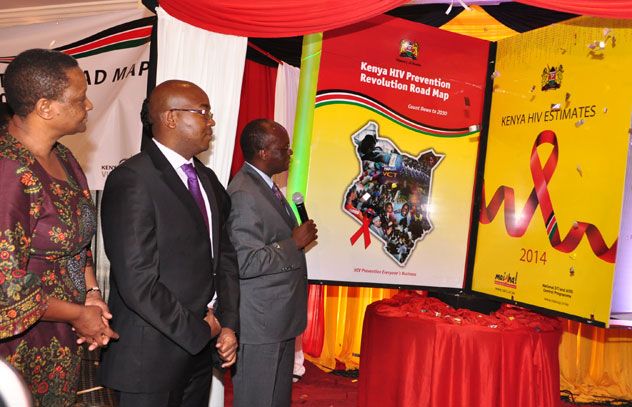

Update
Kenya launches an ambitious HIV prevention road map
21 August 2014
21 August 2014 21 August 2014The Government of Kenya launched its new Kenya HIV Prevention Revolution Road Map on 20 August. The road map, developed by the Ministry of Health, through the leadership of the National AIDS Control Council and the National AIDS and STI Control Programme, with support from cross-sector and international partners, presents new strategic, programmatic and financial approaches to achieving zero new HIV infections in Kenya.
In 2013, an estimated 1.6 million people were living with HIV in Kenya, and 92 000 fewer AIDS-related deaths were recorded in 2013 than in 2005. Although annual new HIV infections declined by 20 000 between 2005 and 2013, an estimated 100 000 new HIV infections occurred in Kenya in 2013.
Comprised of evidence-based and strategic guidelines for investment at the county level, the road map aims to assist coordinated, targeted and high-impact campaigns to reduce the number of new HIV infections in Kenya. Outlining ambitious and actionable targets, it paves the way for Kenya to move from a specific nationwide AIDS response to a more comprehensive and population-based approach that packages biomedical, behavioural and structural HIV programmes targeting various populations at higher risk.
Quotes
"This trailblazing proposal builds on Kenya’s leading role in the global HIV response to offer a new blueprint for the future and a scalable model for other countries’ efforts."
"We are encouraged by the wide support and commitment for this new paradigm from the Government of Kenya and all partners in the AIDS response. The prevention road map provides data for programming and evidence that we must reach key populations and other groups that are being left behind."
"This truly revolutionary road map makes the HIV response everyone’s business. It extends shared responsibility beyond health authorities and defines clear roles and accountabilities for communities and key sectors at the country and county levels. Everyone living with HIV needs life-saving medication and we must make sure it is available."



